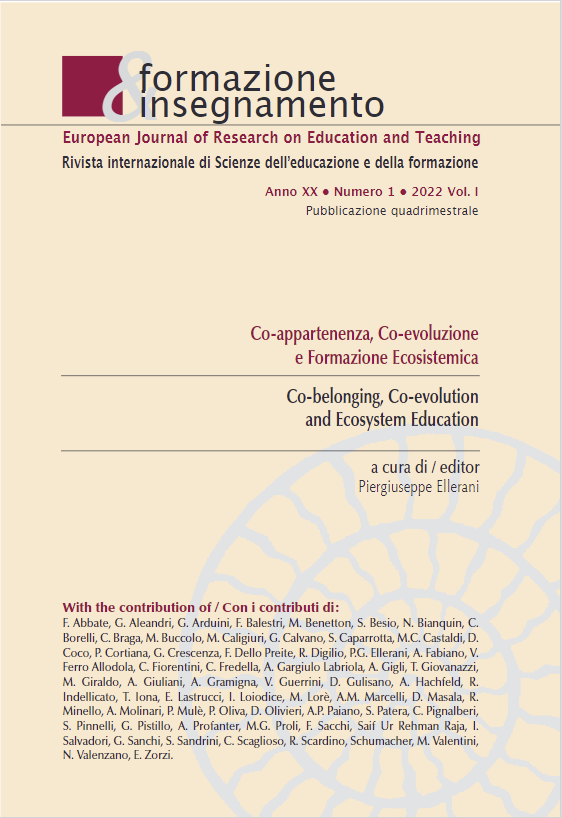When Learning Goes Green: Open Spaces for Education and Social Inclusion
DOI:
https://doi.org/10.7346/-fei-XX-01-22_38Keywords:
Connectedness to nature, Outdoor education, Environmental education, Didactic garden, Inclusive educationAbstract
The current generation of young people is experiencing an «orphan» adolescence of nature. Young people report spending less and less time outdoors, due to a lack of time and space dedicated to recreational school activities and the inability of parents to engage in moments of leisure to be enjoyed together in the open air. These circumstances actually indicate a reduced recognition of the educational value attributed to experiences lived in nature by adults, with important repercussions on the structuring of beliefs and perceptions relating to the relationship with the natural environment. The combination of this inattention to environmental problems and how significant it can be to learn from nature exposes the youngest to a socalled «environmental deficit». The main objective of this study is, therefore, to evaluate the effectiveness of educational programs focused on the enhancement of educational-didactic approaches that exploit the learning of doing, on the level of children’s connectedness to nature and how it is possible to hypothesize changes in dysfunctional behavioral repertoires with reference to environmental conservation.
Downloads
Published
How to Cite
Issue
Section
License
Copyright (c) 2022 Patrizia Oliva

This work is licensed under a Creative Commons Attribution 4.0 International License.
Formazione & insegnamento is distributed under Attribution 4.0 International (CC BY 4.0).
For further details, please refer to our Repository & Archiving Policy, as well as our Copyright & Licensing Terms.





